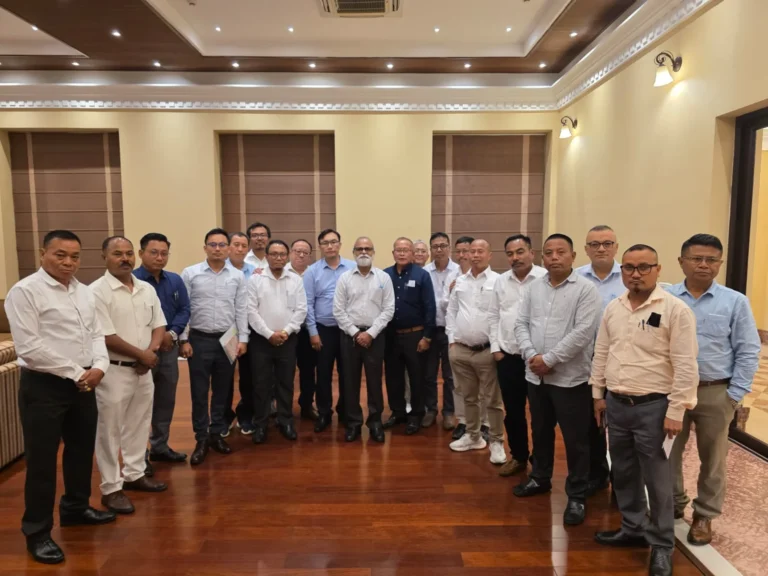Manipur’s Crisis: A Call for Action and Hope Amidst Chaos
Summary
Manipur is experiencing a severe crisis marked by ethnic violence between the Meitei and Kuki communities, which has resulted in loss of lives, widespread displacement, and significant socio-economic disruptions. Congress leaders, including Rahul Gandhi and Priyanka Gandhi, have actively criticized the central government, particularly Prime Minister Narendra Modi, for what they see as inaction and insensitivity to the state’s plight. The Congress delegation, led by Gaurav Gogoi, recently met Priyanka Gandhi to discuss the ongoing crisis, urging for more effective intervention and reconciliation efforts. The prolonged unrest is not just an internal challenge but also poses regional and international implications for India’s strategic interests in Southeast Asia
Introduction: What’s Happening in Manipur?
Manipur, a picturesque state in Northeast India, is currently a ground zero of turmoil, with ethnic violence threatening the fabric of its society. The conflict, rooted in historical mistrust between the Meitei and Kuki communities, has spiraled into a near-civil war, with devastating consequences for residents. Families are displaced, schools and businesses are shut, and the state remains in a constant state of fear and uncertainty.
But why has it escalated this far, and what steps are being taken to resolve this crisis? Let’s dive deep into the ongoing crisis, exploring its causes, impacts, and potential solutions.
The Roots of the Conflict
Ethnic tensions have long existed in Manipur, but the current wave of violence traces back to disputes over land, resources, and political representation. The Meitei community, largely Hindu and concentrated in the valley regions, and the Kuki community, predominantly Christian and inhabiting the hill areas, have clashed over issues like the demand for Scheduled Tribe status for the Meiteis.
This historical rivalry flared up after a court order in 2023, perceived as favoring one group over the other. Misinformation spread rapidly, fueled by the internet, leading to violence that has since become almost uncontrollable.
Congress Steps In: A Delegation’s Effort
Amidst the chaos, Congress has positioned itself as a voice for justice and unity. Recently, a delegation led by Congress leader Gaurav Gogoi met Priyanka Gandhi to push for more concrete actions. They emphasized the need for the central government to take immediate steps to ensure peace and accountability in the state.
The Congress party has criticized Prime Minister Modi’s perceived inaction, calling it a glaring oversight in addressing a humanitarian crisis. Rahul Gandhi’s earlier visit to the state was a moment of solidarity, but even he has lamented the government’s failure to engage meaningfully with the affected communities
Impacts on Manipur’s Society and Economy
The violence has far-reaching effects:
- Humanitarian Crisis: Thousands of people are displaced, living in temporary camps with limited resources.
- Economic Fallout: With businesses shuttered, tourism halted, and infrastructure damaged, Manipur’s economy is on the brink of collapse.
- Education Disrupted: Schools remain closed, leaving a generation of students without access to education.
- Mental Health Toll: Post-traumatic stress disorder (PTSD) and other mental health issues are becoming increasingly common among survivors.
Regional and International Implications
Manipur’s strategic location, bordering Myanmar, makes its stability crucial for India’s foreign policy, particularly the Act East Policy. The ongoing unrest not only tarnishes India’s image globally but also provides an opportunity for adversarial powers like China to exploit regional instability
.
What Can Be Done?
Addressing the crisis in Manipur requires a multi-pronged approach:
- Dialogue and Mediation: Facilitate meaningful dialogue between Meitei and Kuki leaders.
- Rebuilding Trust: Implement policies that address historical grievances while promoting unity.
- Strengthening Institutions: Empower local governance and ensure unbiased law enforcement.
- International Cooperation: Seek assistance from global organizations to manage the humanitarian crisis.
Conclusion: A Ray of Hope?
While the situation in Manipur is dire, it’s not beyond redemption. Efforts by political leaders, civil society groups, and ordinary citizens can pave the way for reconciliation and peace. However, this requires genuine commitment, not just lip service. The people of Manipur deserve safety, dignity, and the opportunity to rebuild their lives.
FAQs
- What triggered the current conflict in Manipur? The conflict escalated due to ethnic tensions between the Meitei and Kuki communities, exacerbated by legal and political disputes.
- How is the Congress party involved in resolving the crisis? Congress leaders have criticized the central government’s inaction and have pushed for immediate intervention, including holding discussions with Priyanka Gandhi.
- What are the economic impacts of the crisis? The violence has devastated Manipur’s economy, halting tourism, damaging infrastructure, and leading to widespread unemployment.
- Why is Manipur’s stability crucial for India? Manipur’s location is vital for India’s Act East Policy and its connectivity with Southeast Asia, making its peace essential for regional stability.
- What steps are being proposed to resolve the crisis? Proposed solutions include facilitating dialogue, rebuilding trust, empowering local governance, and involving international organizations for humanitarian support.



